“Jacob’s Ladder,” directed by Adrian Lyne and released in 1990, is a haunting psychological horror film that delves into themes of trauma, reality, and the human psyche. Written by Bruce Joel Rubin, the film presents a complex narrative that challenges viewers’ perceptions of reality, making it a deeply thought-provoking experience. With standout performances, particularly from Tim Robbins in the lead role, “Jacob’s Ladder” remains a significant entry in the genre and continues to captivate audiences with its unsettling exploration of the mind.
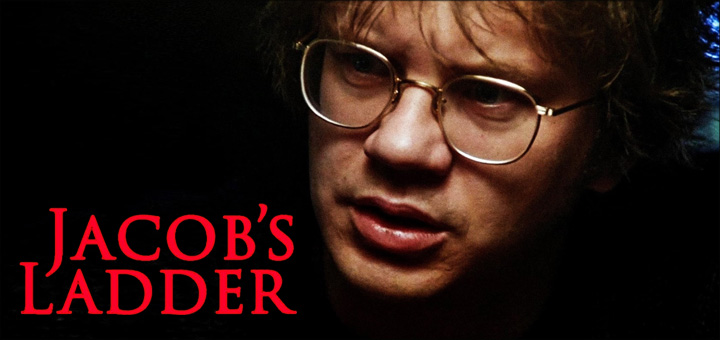
The film follows Jacob Singer, played by Tim Robbins, a Vietnam War veteran struggling with the aftermath of his traumatic experiences. Set in New York City, the narrative unfolds as Jacob grapples with bizarre hallucinations and nightmarish visions that blur the line between reality and illusion. As he navigates the challenges of his daily life, he is haunted by memories of his time in Vietnam, as well as the tragic loss of his son. These experiences contribute to his growing sense of paranoia and disorientation, reflecting the profound impact of war on mental health.
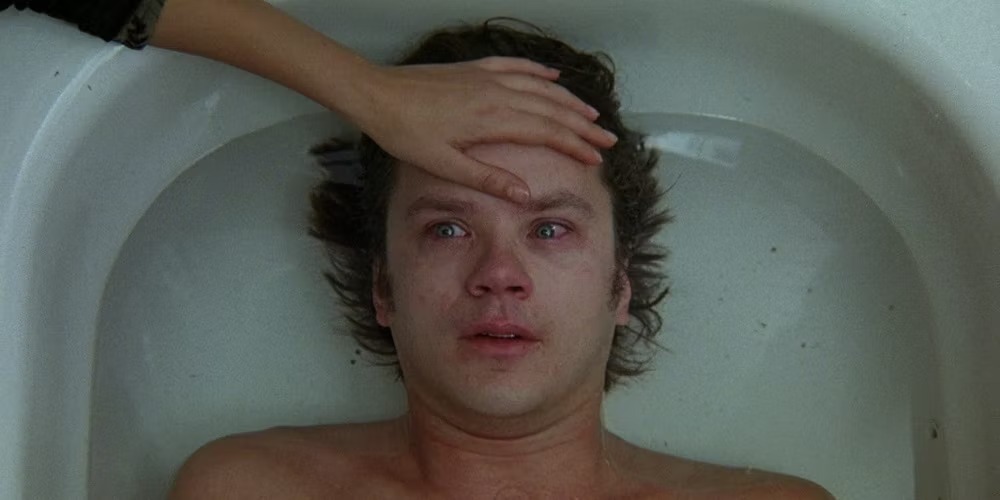
One of the film’s most striking elements is its non-linear storytelling. The narrative shifts between different time periods and realities, creating a disorienting experience for both Jacob and the audience. This technique effectively mirrors Jacob’s own confusion and fear, drawing viewers into his fractured psyche. The film’s dreamlike sequences are beautifully crafted, utilizing surreal imagery and unsettling visuals that evoke a sense of dread and uncertainty. From disturbing hallucinations of grotesque figures to nightmarish landscapes, each scene contributes to the film’s overarching theme of existential dread.
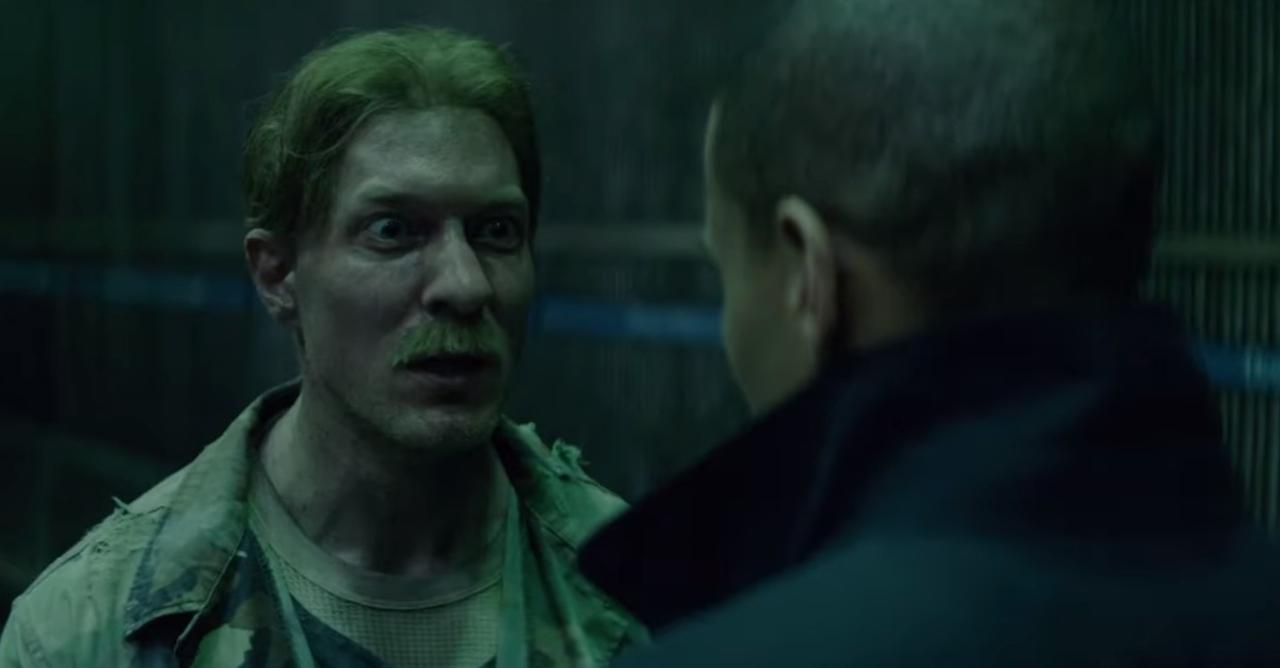
Tim Robbins delivers a powerful performance as Jacob, embodying the character’s vulnerability and internal struggle with authenticity. His portrayal captures the depth of Jacob’s despair and confusion, allowing the audience to empathize with his plight. Robbins effectively conveys a range of emotions, from fear and paranoia to moments of poignant reflection. The supporting cast, including Elizabeth Peña as Jacob’s love interest and Danny Aiello as a mysterious figure offering guidance, further enriches the film’s exploration of relationships and the search for meaning amidst chaos.
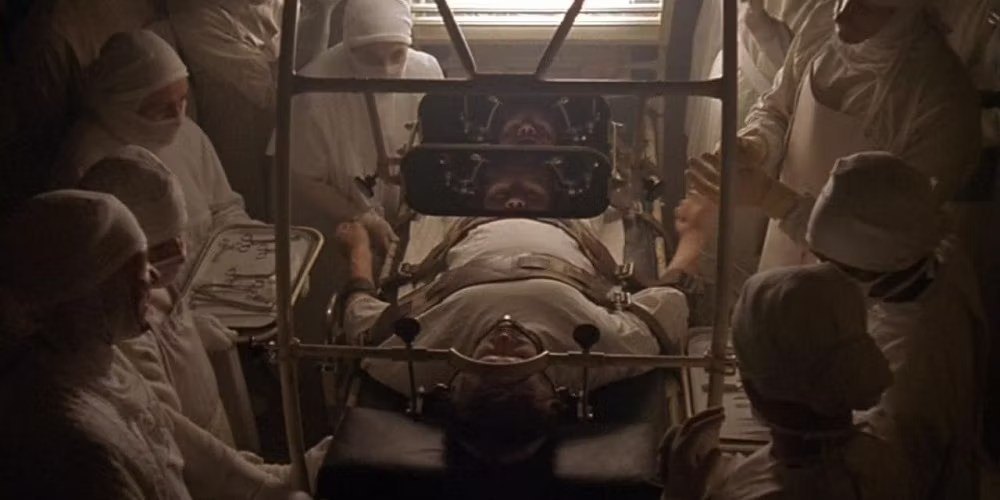
The cinematography, helmed by Adrian Lyne, plays a crucial role in establishing the film’s eerie atmosphere. The use of dim lighting, shadows, and rapid editing enhances the sense of disorientation and dread that permeates Jacob’s world. The unsettling score, composed by Maurice Jarre, amplifies the tension and emotional weight of key scenes, making the viewer acutely aware of the psychological turmoil Jacob faces.
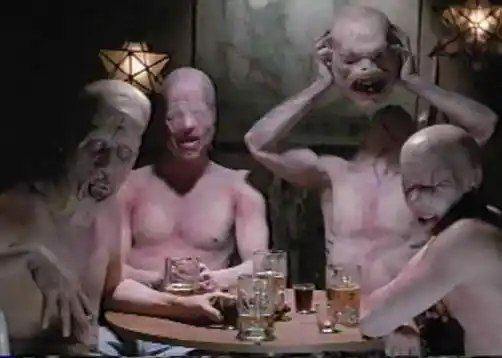
“Jacob’s Ladder” also delves into profound philosophical questions about life, death, and the nature of reality. The film explores the concept of purgatory, suggesting that Jacob’s experiences may be a reflection of his internal struggle for redemption and understanding. As he confronts his past and the traumas of war, the film raises questions about guilt, forgiveness, and the possibility of finding peace. This thematic depth adds layers to the narrative, elevating it beyond a conventional horror film.
Despite its critical acclaim, “Jacob’s Ladder” was not a commercial success upon its release, which may be attributed to its challenging narrative structure and dark themes. However, over the years, it has gained a cult following and is often regarded as a classic in the psychological horror genre. Its influence can be seen in various films and works that explore similar themes of trauma and psychological disintegration.
In conclusion, “Jacob’s Ladder” is a haunting and thought-provoking film that masterfully intertwines psychological horror with existential themes. Through Tim Robbins’ compelling performance, stunning cinematography, and a haunting score, Adrian Lyne creates an immersive experience that resonates with audiences long after the credits roll. The film invites viewers to reflect on the complexities of the human mind and the lasting impacts of trauma, making it a powerful exploration of the darker aspects of existence. “Jacob’s Ladder” stands as a testament to the ability of cinema to challenge our perceptions and evoke profound emotional responses, solidifying its place as a landmark in psychological horror.